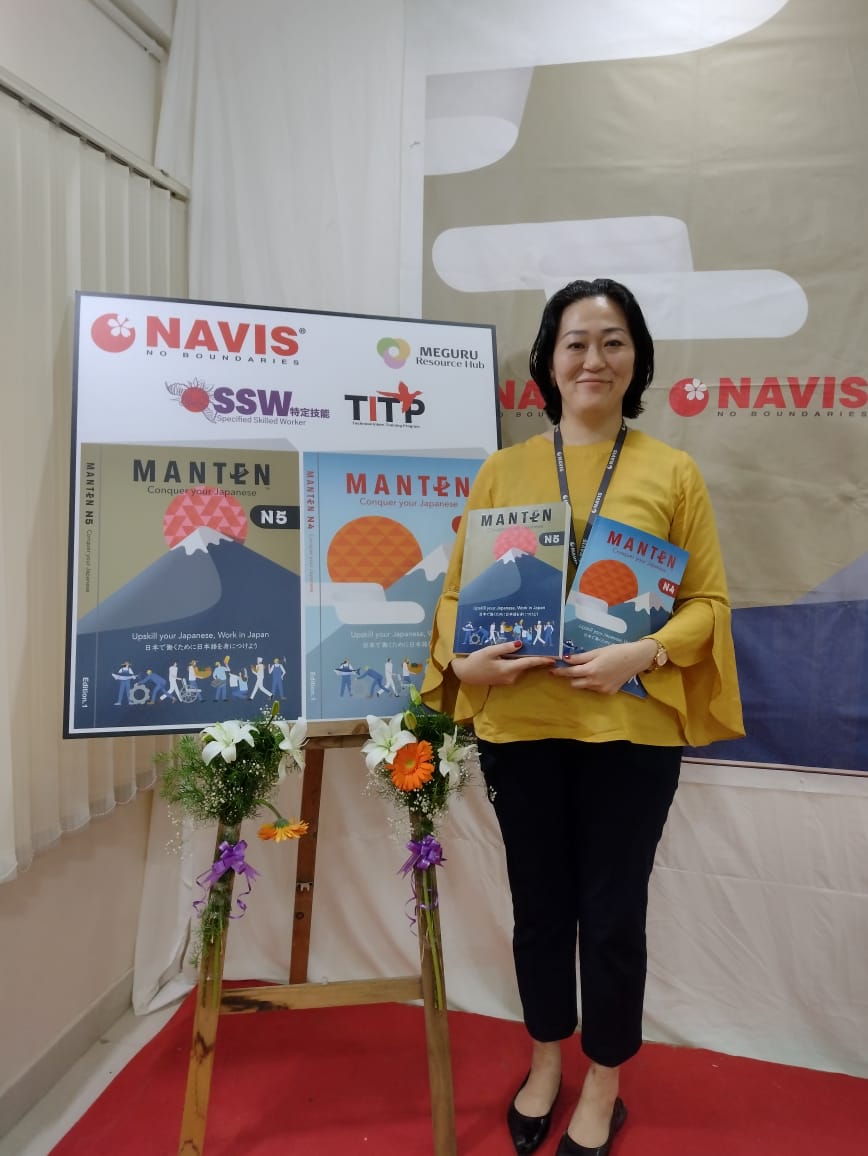Nations around the world have a massive and growing challenge of educating and creating decent work for their youth. But, there are some private companies that chip in to do their bit to solve the unemployment problem.
One such company is Bengaluru-based NAVIS Human Resources Private Limited, which started its journey in India as a Japanese language training and staffing company in 2002.
In 2018, the firm was approved by the Indian government as a training and recruitment organisation under Indo-Japan Technical Intern Training Programme (TITP), which helped it scale up its business in Japan and Indian markets.
The company currently provides a one-stop service focused on the caregiver under TITP and Specified Skilled Worker (SSW) training for the recruitment of Indian nurses.
NAVIS plans to send 172 trainees by 2022 and in the next five years aims to send 1000 trainees to Japan, the company CEO Takako Oshibuchi said in an interview with TheNFAPost.Com.
Under the TITP, the company offers different levels of Japanese language training. “The course fee varies from Rs 1 lakh to Rs 3 lakh, but the aspirants are guaranteed 100 per cent jobs after clearing the exam,” she said.
Talking about the future plans, Oshibuchi said the company wants to launch training for farmers who are much in demand in Japan.
“The Indian farmers are well versed with modern technologies through government initiatives and agricultural universities. Therefore, they are an asset and we believe they will fit into the Japanese scheme of things after giving them training in the Japanese language,” she said.
Unlike the caretaking students, the farmers will not undergo any examination. “We will only impart the Japanese language and if we find they are job-ready, we will give them the certificate,” Oshibuchi said.
The firm plans to send 20 to 30 farmers by December and later increase the numbers after studying the situation, she added.
As of now, as many as 20 job-giving Japanese firms are tied up with NAVIS which do campus selection. “The certified students or aspirants can also hunt jobs in Japan on their own,” she said.
Moreover, the company also wants to expand its business in other countries like Germany, the UK and other European countries, Oshibuchi said.
“However, there is great potential for Indians to get employed in Japan. I come across many Indians talking about their relatives or friends, working in the US or European countries, but hardly hear about them speaking about their dear ones working in ASEAN countries. That’s where NAVIS chips in,” she said.
Oshibuchi said there is a huge potential of producing and sending TITP trainees to Japan, but the Japanese firms prefer the blue-collared TITP trainees from countries like Vietnam, Philippines, Myanmar, Indonesia, and others including Nepal.
Vietnam alone meets 50 per cent of the TITP trainees’ demand in Japan. Therefore, there is a problem with India’s image and that needs to be improved, Oshibuchi said.
“The Japanese firms believe that the Indian human resources are good only at Information technology, software, Artificial Intelligence (AI) and Internet of Things (IoT), but not at pharmaceuticals and manual work. This needs to be changed and it is a challenge,” she said.
“We are, for now, putting out videos portraying how the Indian human resources are even good at blue-collared or manual jobs too. But, this is not enough. There needs to be done even more.
There are many who are also advising us to take the help of the government of India’s help in improving the image. After all, providing jobs to its people is one of the most important duties of the government and if it helps us in this endeavour, it shall help itself in providing jobs,” Oshibuchi said.
The aspirants working in Japan can save money and support their family back to fulfil their dreams.





